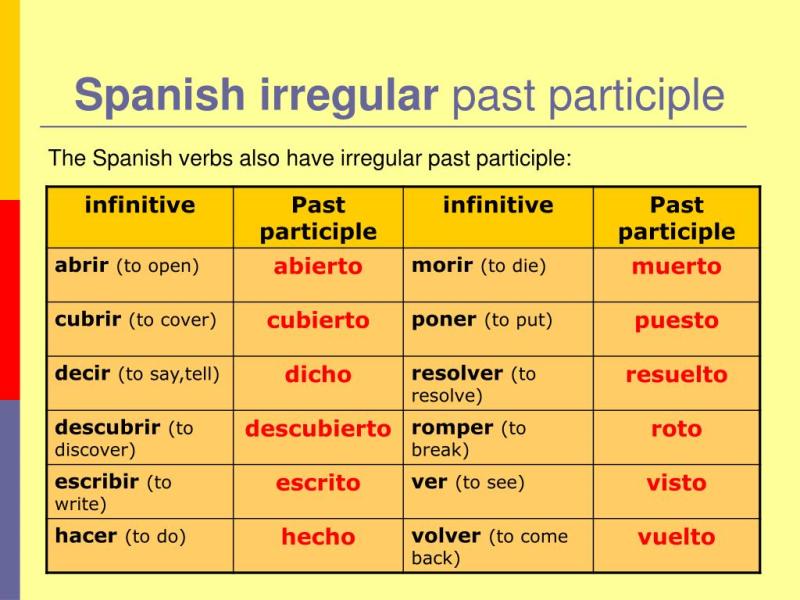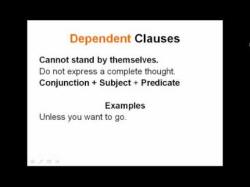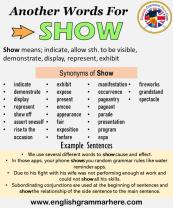What is the difference between simple past and past participle?
The simple past and past participle are two different verb forms used in English grammar, and their usage depends on the context and the verb tense required. Here's a brief explanation of the differences between the simple past and past participle:
Simple Past:
- The simple past tense is used to describe completed actions or events that occurred at a specific point in the past.
- It is formed by adding the past tense suffix "-ed" to regular verbs. However, irregular verbs have unique past tense forms.
- Examples:
- Regular verb: "I walked to the store yesterday."
- Irregular verb: "She ate lunch an hour ago."
Past Participle:
- The past participle is a verb form used in various tenses, such as the present perfect, past perfect, and passive voice constructions.
- Regular verbs form the past participle by adding the "-ed" suffix, similar to the simple past. Irregular verbs, however, have unique past participle forms.
- Examples:
- Regular verb: "She has worked here for three years." (present perfect)
- Irregular verb: "The song was sung beautifully." (passive voice)
In summary, while both the simple past and past participle involve actions or events in the past, the simple past is used to describe completed actions at a specific time, while the past participle is used in conjunction with auxiliary verbs to form different tenses or in passive voice constructions. Irregular verbs can have distinct forms for both the simple past and past participle, adding an extra layer of complexity.
Explaining the distinction between simple past and past participle verb forms
Understanding the difference between simple past and past participle verb forms is crucial for accurate and clear communication. Let's break it down:
Simple Past:
Tense: Indicates a completed action or event in the past.
Form: For regular verbs, adding "-ed" or "-d" to the base form (e.g., walk → walked, play → played). Irregular verbs follow specific patterns or have entirely different forms (e.g., go → went, come → came).
Usage: Used in sentences when referring to completed actions at a specific past time:
- I ate breakfast this morning.
- She wrote a letter yesterday.
- They watched a movie last night.
Past Participle:
- Tense: Used in various grammatical constructions, not just to indicate tense.
- Form: For regular verbs, same as the simple past. For irregular verbs, often different (e.g., break → broken, eat → eaten).
- Usage:
- Perfect tenses: Combined with auxiliary verbs like "have" or "had" to form present perfect, past perfect, and future perfect tenses (e.g., I have eaten, I had written, I will have watched).
- Passive voice: Combined with the auxiliary verb "be" to form the passive voice (e.g., The letter was written by her).
- Adjective phrases: Can act as an adjective to modify a noun (e.g., The opened door creaked).
Key Distinctions:
- Function: Simple past indicates completed actions, while the past participle has broader uses.
- Form: Same for regular verbs, different for many irregular verbs.
- Sentence use: Simple past stands alone as the main verb, while the past participle participates in various constructions.
Here's a table to summarize:
| Tense | Definition | Form (Regular Verbs) | Form (Irregular Verbs) | Usage |
|---|---|---|---|---|
| Simple Past | Completed action in the past | base form + "-ed" or "-d" | Specific patterns or different forms | I walked to the store. |
| Past Participle | Used in various constructions | Same as simple past | Often different from simple past | I have walked for miles. |
Remember, practice makes perfect! Try constructing sentences using both verb forms to solidify your understanding. If you have any questions about specific verbs or usage, feel free to ask!












